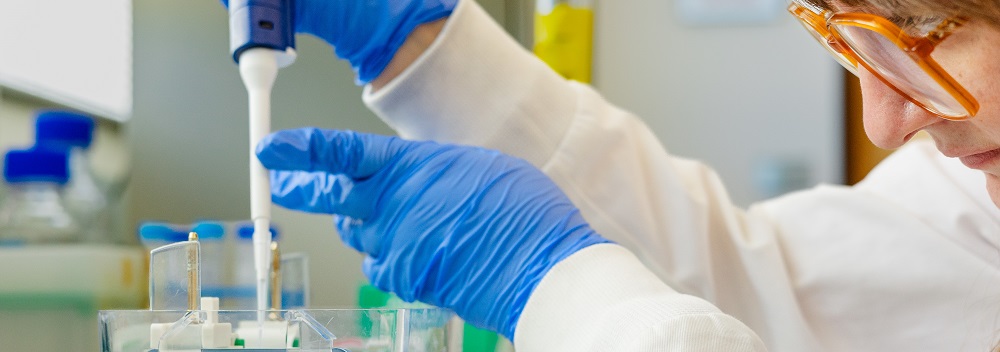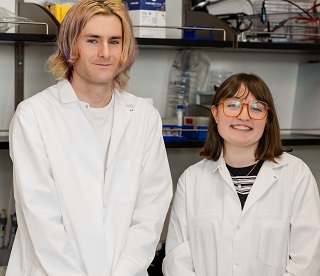
Dr. Praveen Patidar
Donate Now
Dr. Patidar's Research Shows Promise in Fighting Pancreatic Cancer
Welcome to the Patidar Lab where Dr. Praveen Patidar and his students are studying mammalian DNA damage and repair response. DNA damage is a hallmark of several devastating diseases such as neurodegenerative disorders, autoimmune diseases, and cancer. With funding from the NIH, the Patidar lab is making tremendous strides in understanding the process of carcinogenesis and identifying novel chemotherapeutic approaches to treat numerous cancers including one of the most deadly, pancreatic cancer.
Dr. Patidar came to New Mexico Tech’s Chemistry Department in 2016 bringing with him a wealth of knowledge, expertise, and passion for the study of protein biochemistry and DNA damage. Dr. Patidar and his former NMT PhD student, Dr. Talysa Ogas Viera, have a patent pending for their work in discovering a tumor-selective chemotherapeutic approach for pancreatic cancer treatment.
Dr. Patidar and Dr. Ogas Viera’s work focused on learning how and why the drug candidate KP372-1 causes cancer cell death through redox cycling by NQO1, an enzyme especially elevated in the majority of solid cancers. They showed how this drug candidate gives cancer cells a “kiss of death” by creating DNA damage and draining their energy pool - laying a foundation to establish KP372-1 as a promising chemotherapeutic agent against cancer.
KP372-1 has already shown efficacy in animal trials and clinicians have reached out to Dr. Patidar with interest in human trials.
Dr. Patidar’s current students, Quinn Abfalterer (left) and Ruthie Mulvaney (right), are expanding our knowledge of DNA damage and repair through their research projects.
Quinn Abfalterer, Class of 2022, Biology & Math, first year graduate student, Chemistry:
Quinn started working for Dr. Patidar as a sophomore in 2020. Now as a first-year graduate student, he is studying the protein TOP1, an important chemotherapeutic drug target. Through his research on the interactions between TOP1 and a smaller protein, RPRD1B, Quinn has found how the proteins work together to maintain genomic stability. This expansion of knowledge could help demonstrate a new way to target TOP1 and thus offer a new method of treating cancer.
Quinn enjoys the lab and furthering the world’s understanding of fundamental science questions. He is currently working on applications to PhD programs, hoping to continue his work on DNA damage.
Ruthie Mulvaney, Class of 2023, Biomedical Sciences:
2023 Macey Scholar
Ruthie’s research is focused on understanding CPSF73, an enzyme integral to genome maintenance. Without it, genes won’t be properly expressed.
Ruthie’s group found that depletion of this key enzyme results in a high accumulation of DNA damage and cell death. Demonstrating the detrimental damage caused by CPSF73’s removal, has improved the scientific community's understanding of the importance of this enzyme and also its potential as a target for cancer treatment.
Through her work in the Patidar Lab, Ruthie has found her passion! Her research experience has also prepared her for what to expect as she moves on to graduate school - her next step is a PhD from UNC Chapel Hill.
